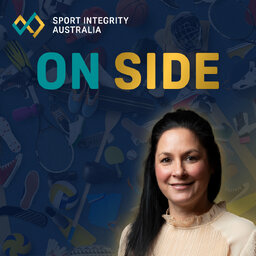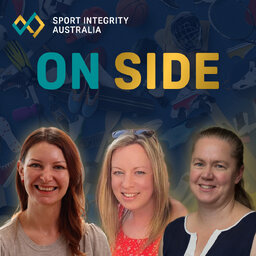The science behind SIA: Celebrating International Day of Women & Girls in Science (ft. Dr Gemma Payne)
Guest: Dr Gemma Payne (Assistant Director, Science & Medicine)
Today (11 February) is International Day of Women and Girls in Science.
It’s a time for the team at Sport Integrity Australia to reflect on the important work of women in this field.
This year’s theme is: Unpacking STEM Careers: Her Voice in Science and is the 10th anniversary of the event – 2025 International Day of Women and Girls in Science | UNESCO.
The gender composition of our Science and Medicine team at Sport Integrity Australia is 90% women. In addition to this, membership of the Australian Sports Drug Medical Advisory Committee, established under the Sport Integrity Australia Act, is 70% female.
Our Science and Medicine team work hard to understand the science of doping and the analytical procedures used to test samples. Being at the forefront of wider developments in forensic science is an essential part of the team’s role in deterring, disrupting and detecting doping in sport.
On this International Day of Women and Girls in Science, we speak with our Assistant Director of Science and Medicine, Dr Gemma Payne. Gemma completed a Bachelor of Science with Honours (in Forensic Science) at university, followed by a PhD. Our host Tim Gavel speaks with Gemma about her role at Sport Integrity Australia, the importance of forensics in the intelligence process at the agency and the fresh approach women bring to the field of science.
Find out more on our website: https://www.sportintegrity.gov.au/
In 1 playlist(s)
On Side
On Side is Sport Integrity Australia's official podcast hosted by sports broadcaster, Tim Gavel. Epi…Social links
Follow podcast
Recent clips

Past progress, future focus ft. Sport Integrity Australia CEO Dr Sarah Benson PSM
24:39

Clean or contaminated: the truth about sports supplements
25:33

Basketball & beyond: Lauren Jackson’s play for equity & inclusion in sport
37:31
 On Side
On Side